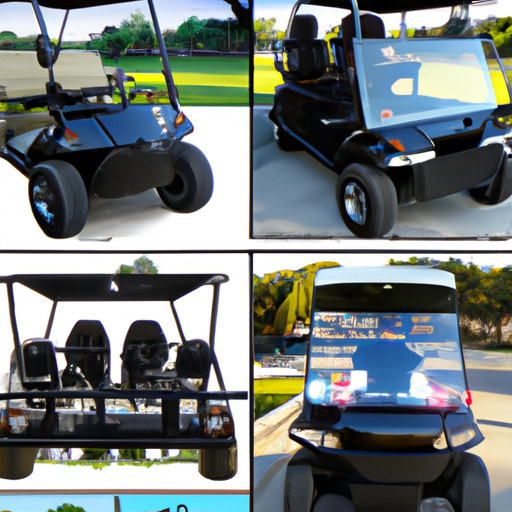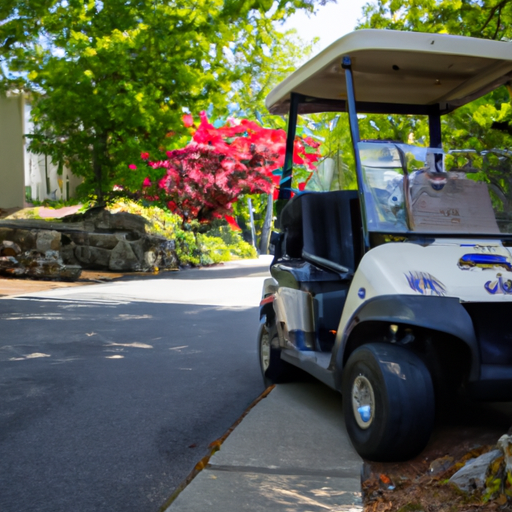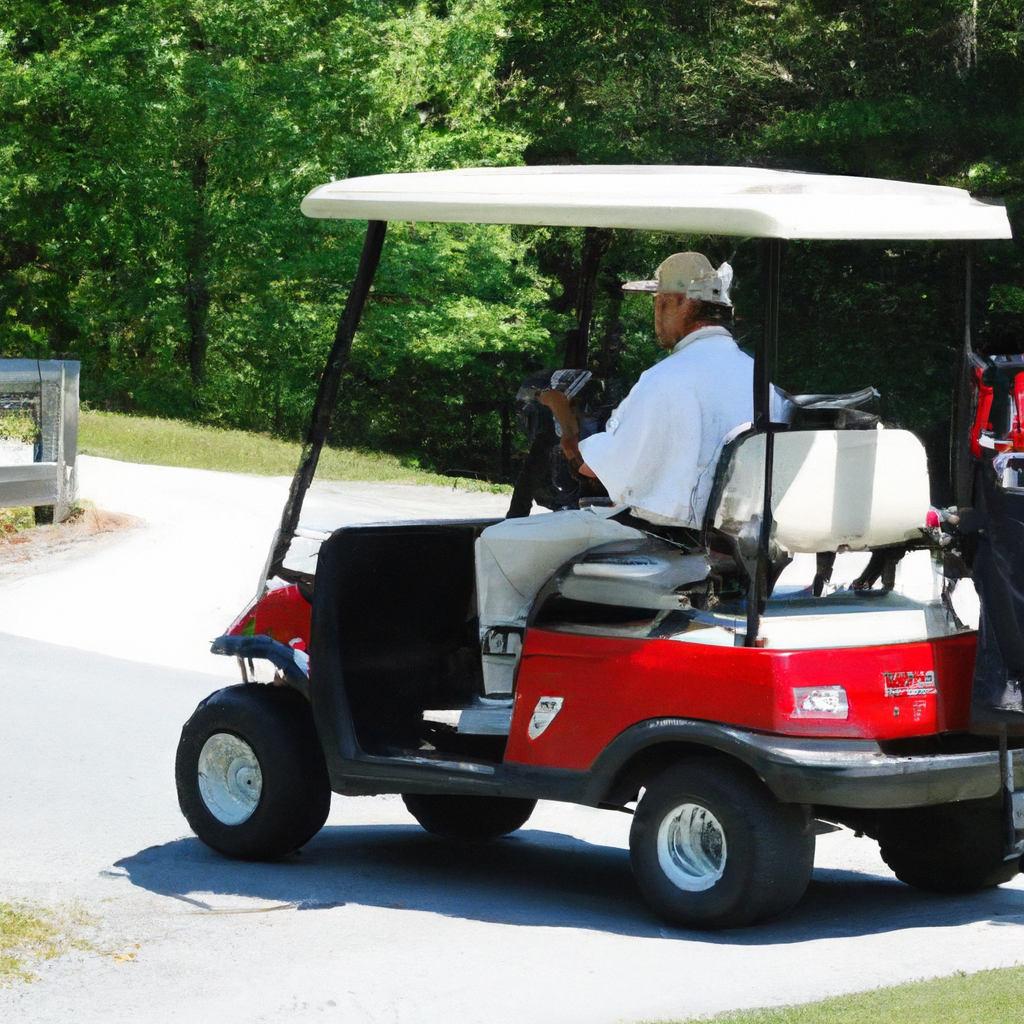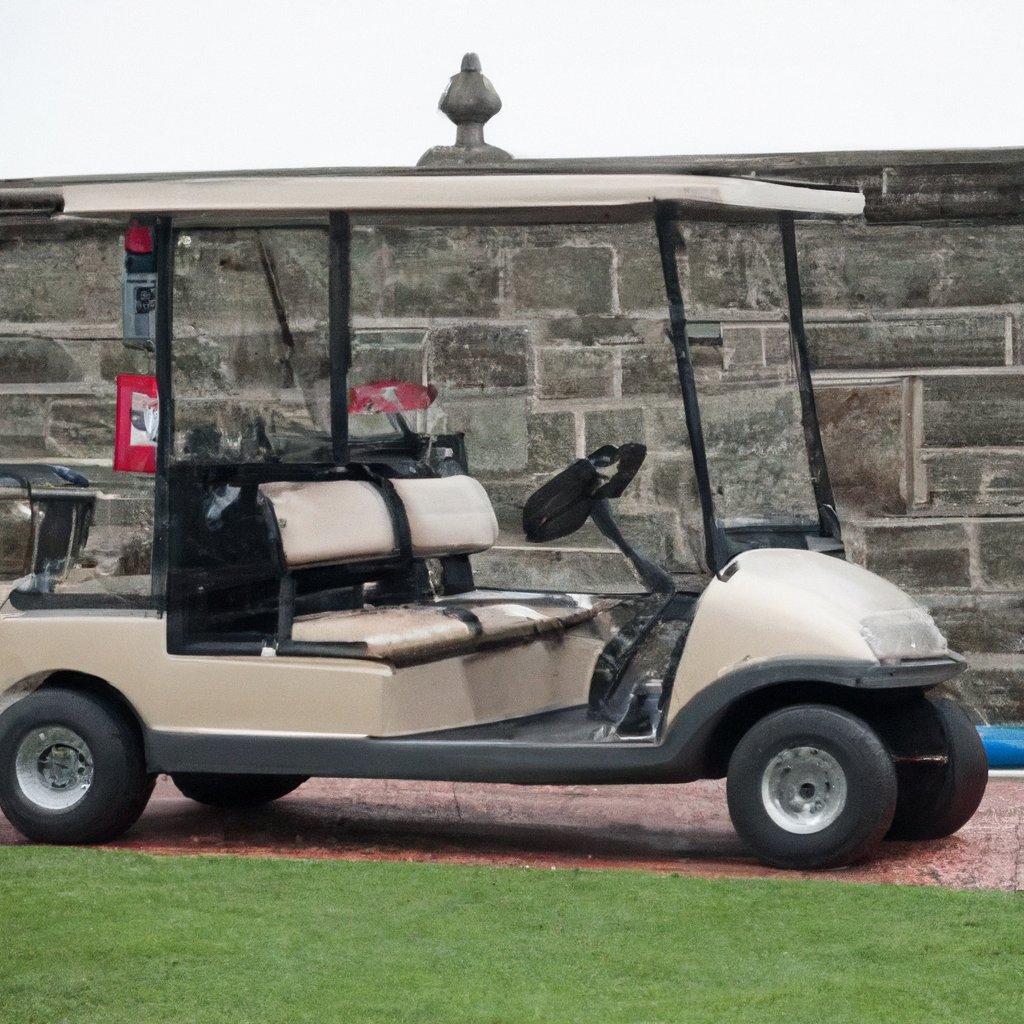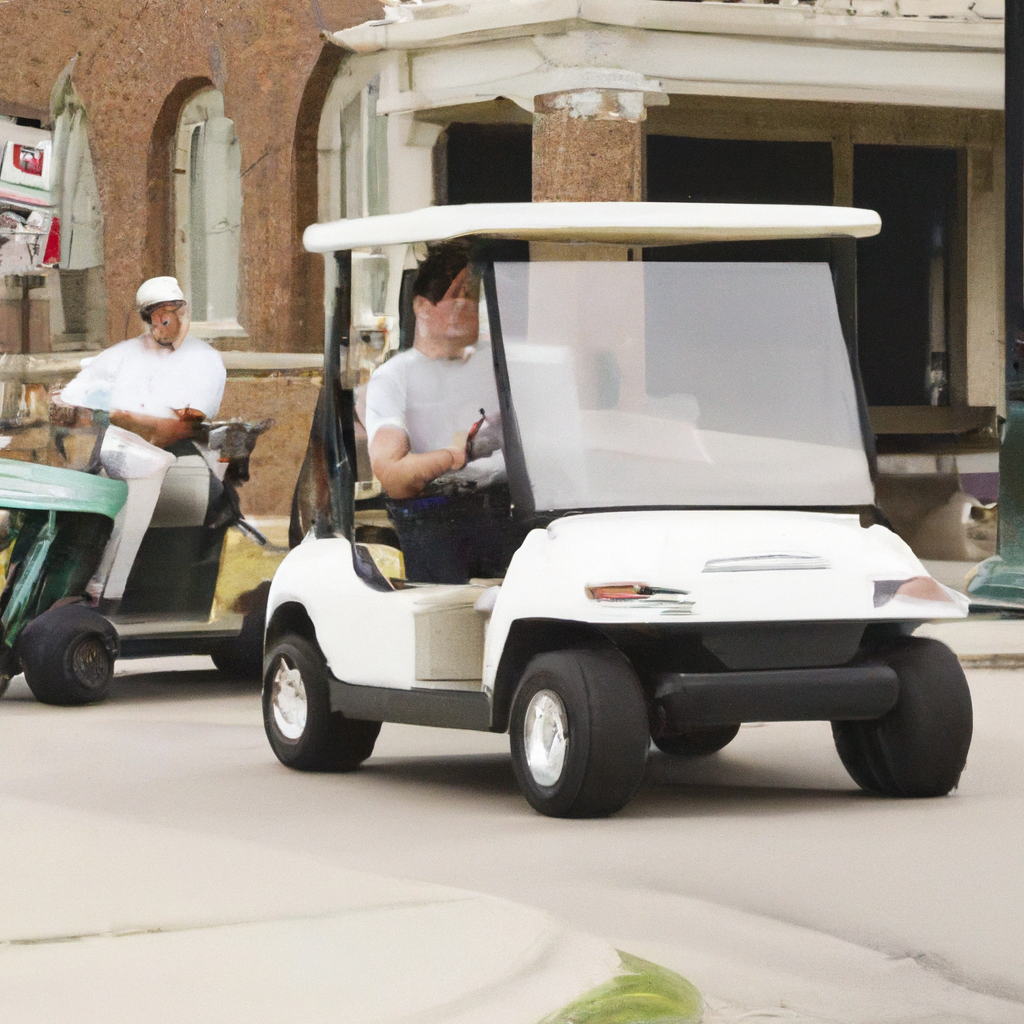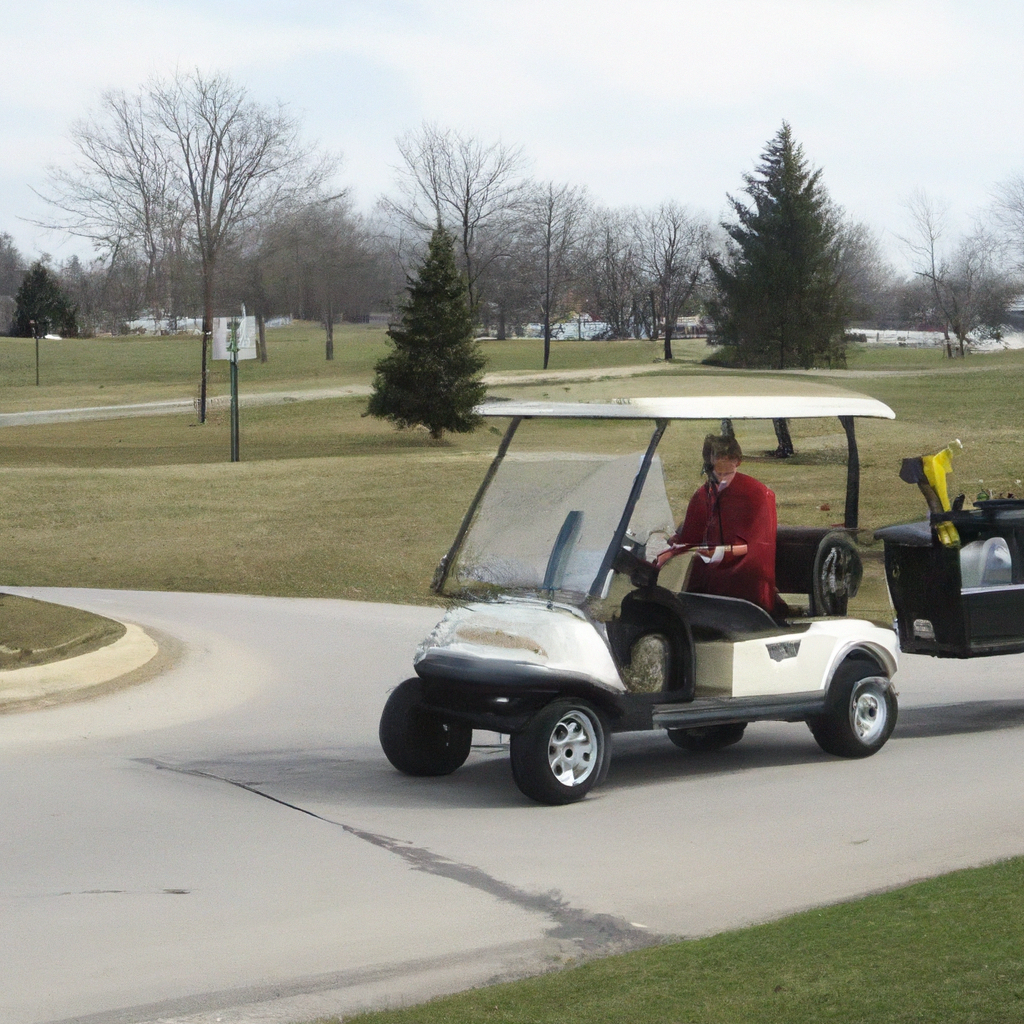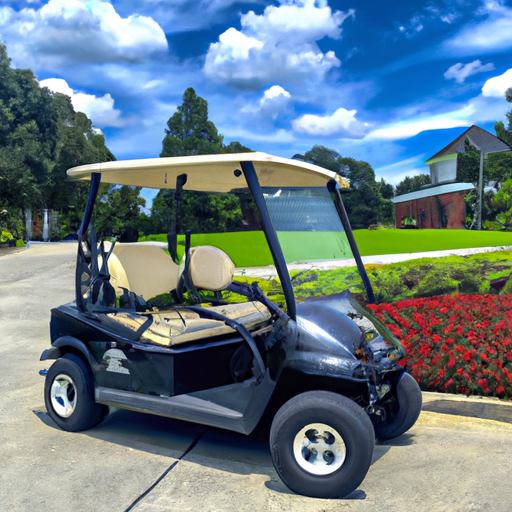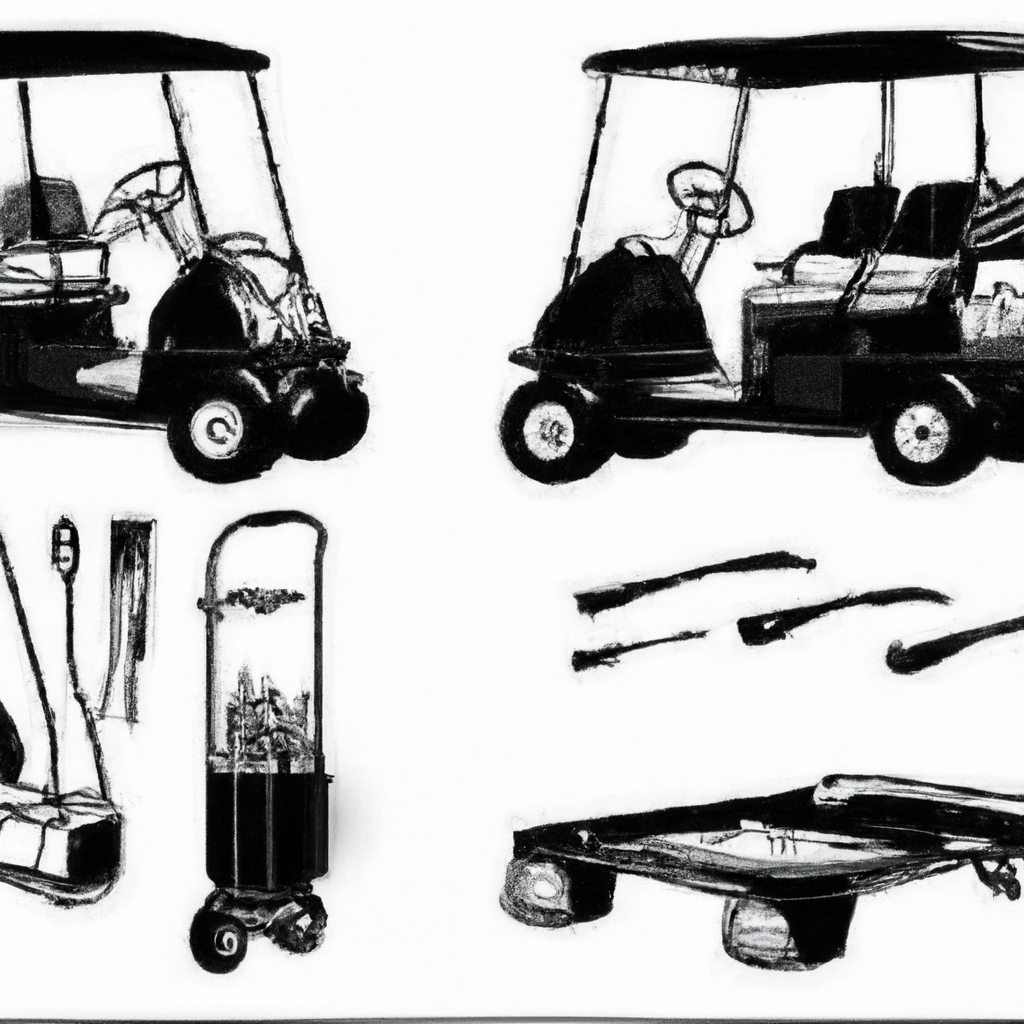So, you’ve got yourself a golf cart, and you’d like to take it for a spin on the streets of Florida. Well, good news! With a few simple steps and a little bit of paperwork, you can make your golf cart street legal in the Sunshine State. From adding essential safety features to getting the necessary permits, this article will guide you through the process, making sure you’re properly equipped to cruise along the Florida roads in no time. So, buckle up and get ready to hit the streets in style with your newly street legal golf cart!
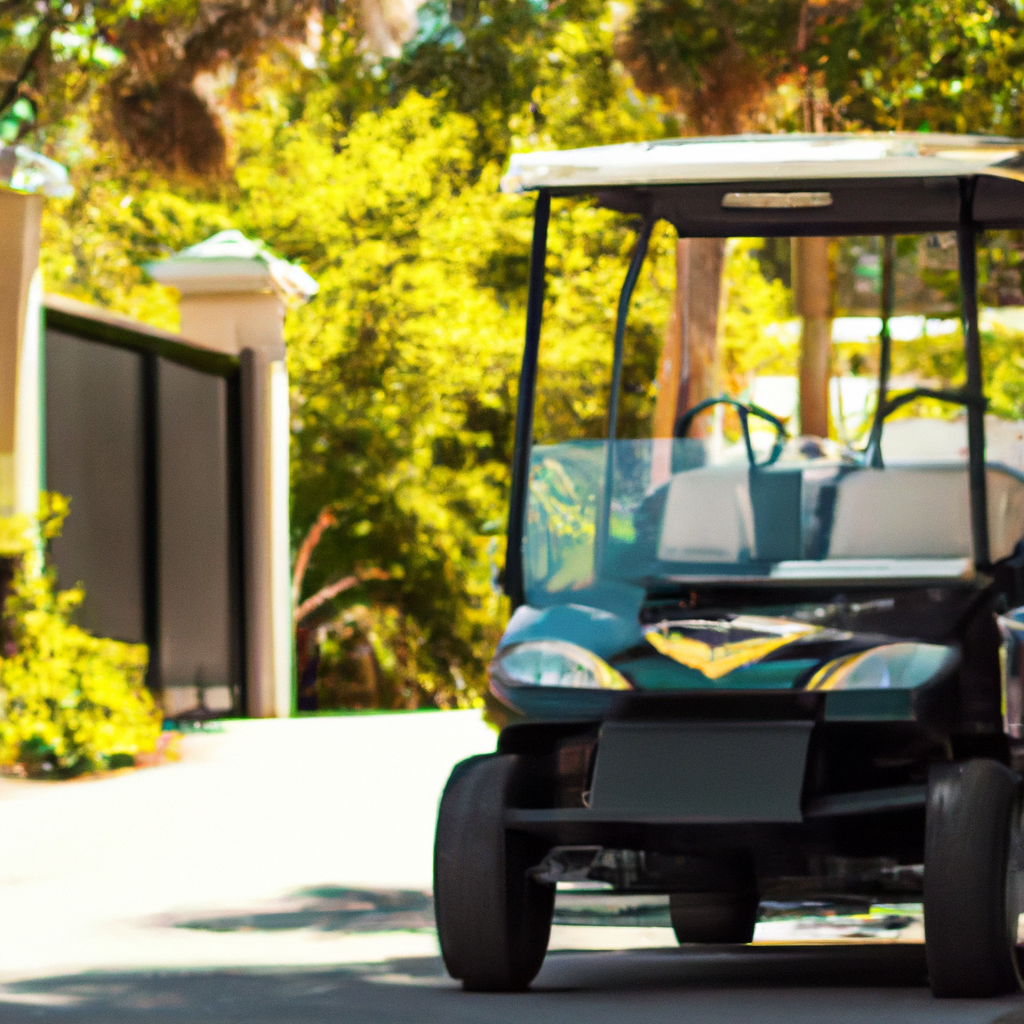
Determine Eligibility for Street Legal Conversion
Before you begin the process of converting your golf cart into a street legal vehicle, it is essential to determine the eligibility of your golf cart for this conversion. To do so, you must first check the local laws and regulations in your area and understand how golf carts are classified.
Check Local Laws and Regulations
Street legal requirements for golf carts can vary from state to state and even within different local municipalities. Therefore, it is crucial to familiarize yourself with the specific laws and regulations in your area. Check with your local department of motor vehicles or the transportation authority to obtain accurate information about the requirements for street legal golf carts.
Understand Golf Cart Classification
Golf carts are typically classified into two categories: Low-Speed Vehicles (LSV) and Neighborhood Electric Vehicles (NEV). LSVs are allowed to operate on roads with posted speeds of up to 35 mph, while NEVs can travel on roads with posted speeds of up to 25 mph. Understanding the classification of your golf cart will help you determine which modifications are necessary to make it street legal.
Vehicle Modifications
Once you have determined the eligibility of your golf cart, the next step is to make the necessary vehicle modifications to meet the street legal requirements. Here are some key modifications that you should consider:
Install Proper Safety Equipment
To ensure the safety of yourself and others on the road, it is essential to install the necessary safety equipment on your golf cart. This may include seat belts, headlights, taillights, brake lights, reflectors, a horn, and windshield wipers. Installing these safety features will enhance visibility and make your golf cart more noticeable to other drivers on the road.
Upgrade Lighting and Reflectors
Proper lighting is crucial for a street legal golf cart, especially during nighttime operations. Upgrading your golf cart’s lighting system to include headlights, taillights, and turn signals is essential to comply with the street legal requirements. Additionally, adding reflective tape or reflectors on the sides and rear of your golf cart will further enhance its visibility.
Install Turn Signals and Mirrors
Turn signals and mirrors are essential for indicating your intentions on the road and keeping track of your surroundings. Install turn signals that can be easily operated from the driver’s seat and ensure that they are visible to other road users. Additionally, consider installing side-view mirrors and a rearview mirror to provide you with better visibility and enhance your situational awareness.
Obtain Insurance and Registration
After making the necessary modifications to your golf cart, you’ll need to obtain insurance and registration to legally operate it on public roads. Here’s what you need to do:
Research Insurance Options
Contact your insurance provider or explore different insurance options to find a policy that meets the requirements for street legal golf cart insurance. Compare coverage options and premiums to ensure you are adequately protected. Be sure to inquire about liability insurance, which is typically required for street legal golf carts.
Choose Appropriate Coverage
Once you have researched insurance options, choose the coverage that meets your needs and complies with the local laws. In addition to liability insurance, you may also want to consider comprehensive coverage, which will protect your golf cart against theft, vandalism, and other risks.
Register Your Golf Cart
The next step is to register your golf cart with the appropriate authorities. Contact your local department of motor vehicles or transportation authority to find out the specific registration requirements for street legal golf carts in your area. Prepare the necessary documentation, such as proof of ownership, proof of insurance, and any required forms, and follow the registration process to obtain your golf cart’s registration certificate and license plates.

Meet Safety Requirements
To ensure that your street legal golf cart is safe to operate on public roads, you must meet specific safety requirements. Here are some key areas to focus on:
Ensure Adequate Braking System
Having a reliable braking system is crucial to ensure the safety of yourself and others on the road. Inspect your golf cart’s brakes and ensure that they are in good working condition. If necessary, have them serviced or replaced by a professional to meet the safety requirements for street legal golf carts.
Check Tire Specifications
Proper tires are essential for safe road travel. Check the tire specifications required for street legal golf carts in your area. Ensure that your golf cart’s tires meet the necessary size, tread, and pressure requirements. Regularly inspect the tires for wear and tear, and replace them as needed to maintain road safety.
Adjust Maximum Speed
Most street legal golf carts have a speed limit imposed to ensure their safe operation. Check the maximum speed limit allowed for your golf cart and adjust it accordingly. This can typically be done through a governor adjustment or programming. Adhering to the designated speed limit is essential for maintaining safety on the roads.
Valid Driver’s License and Age Requirements
Operating a street legal golf cart requires a valid driver’s license and compliance with age restrictions. Here’s what you need to know:
Check Minimum Age Restrictions
Different areas may have varying age restrictions for operating a street legal golf cart. Review the local laws and regulations to find out the minimum age requirement for driving a golf cart on public roads. Ensure that you or the intended driver meets the minimum age criteria before operating the street legal golf cart.
Possess a Valid Driver’s License
In addition to meeting the age requirements, it is essential to possess a valid driver’s license to operate a street legal golf cart. Verify that your driver’s license is current and valid. If the intended driver does not have a driver’s license, they will not be legally allowed to operate the golf cart on public roads.
Understanding Road Use Limitations
While your golf cart may be street legal, it is essential to understand the road use limitations that apply to these vehicles. Here are some key considerations:
Know Where You Can and Cannot Drive
Familiarize yourself with the roads and areas where you are permitted to drive your street legal golf cart. Some roads may have restrictions or prohibitions for golf carts, such as highways or major thoroughfares. Respect these rules and stick to designated roads and areas where golf carts are allowed.
Follow Speed Limits and Traffic Laws
Adhering to speed limits and traffic laws is crucial for the safe operation of your golf cart on public roads. Observe and abide by speed limits, traffic signals, and other applicable regulations. Remember that your golf cart is sharing the road with other vehicles, so it is essential to drive responsibly and in accordance with traffic laws.
Adhere to Daytime Driving Restrictions
Certain areas may have restrictions on driving a street legal golf cart during nighttime or specific times of the day. Be aware of any such limitations and avoid operating your golf cart during prohibited hours. It is important to prioritize safety and comply with all applicable regulations to prevent accidents and ensure a positive experience on the road.
Consider Environmental Impact
As you convert your golf cart into a street legal vehicle, it is also essential to consider its environmental impact. Here are some ways you can make your street legal golf cart more environmentally friendly:
Opt for Electric Golf Carts
Electric golf carts are more environmentally friendly compared to gas-powered ones. They produce zero emissions and help reduce air pollution. If you have the flexibility to choose, consider opting for an electric golf cart to minimize your carbon footprint.
Use Energy-Efficient Models
If you already have a golf cart and are not looking to replace it, you can still contribute to a more sustainable future by using energy-efficient models. Ensure that your golf cart’s batteries are well-maintained and charged efficiently. Avoid excessive idling or unnecessary energy consumption to maximize the energy efficiency of your golf cart.
Participate in Green Initiatives
Take part in green initiatives and organizations that promote sustainable practices for golf carts and other eco-friendly vehicles. Stay informed about the latest developments and technologies in electric transportation. By actively participating in these initiatives, you can contribute to the overall mission of creating a greener and more sustainable future.
Maintain Your Street Legal Golf Cart
To keep your street legal golf cart running smoothly and safely, it is crucial to stay on top of regular maintenance. Here are some maintenance tips to keep in mind:
Regularly Inspect and Maintain Vehicle
Perform regular inspections of your golf cart to identify any issues or areas that require maintenance. Check for loose connections, damaged wiring, or any signs of wear and tear. It is essential to address these issues promptly to prevent further damage and ensure the ongoing safety of your street legal golf cart.
Ensure All Safety Features are Functional
Regularly check that all safety features, such as lights, turn signals, mirrors, and brakes, are fully functional. If you notice any malfunctioning or damaged components, have them repaired or replaced immediately. Safety should always be a top priority, and ensuring that your golf cart’s safety features are in good working condition is key to maintaining a street legal vehicle.
Keep Up with Scheduled Servicing
Follow the manufacturer’s recommended maintenance schedule for your golf cart. This includes regular servicing, battery maintenance, and other routine checks. Adhering to the scheduled maintenance will help extend the lifespan of your golf cart and reduce the likelihood of unexpected breakdowns or issues.
Stay Informed about Updates in Regulations
Street legal requirements for golf carts may evolve over time, so it is essential to stay informed. Here’s how you can keep up with the latest updates:
Check for Changes in Local Laws
Regularly check for changes in local laws and regulations regarding street legal golf carts. Stay updated with any amendments or additions to the existing requirements. Websites of local transportation authorities or department of motor vehicles are good sources of current information.
Stay Updated with Safety Standards
Stay informed about the latest safety standards and recommendations for street legal golf carts. Follow news and updates from relevant organizations and institutions related to golf cart safety. Being aware of current safety standards will ensure that your street legal golf cart remains compliant and safe to operate.
Participate in Golf Cart Communities
Join golf cart communities or clubs to stay connected with other golf cart enthusiasts. These communities often provide valuable information, updates, and resources related to street legal golf carts. By engaging with fellow golf cart owners, you can stay informed about any changes or developments in regulations and share experiences and tips for maintaining and operating your street legal golf cart.
Conclusion
Converting your golf cart into a street legal vehicle requires careful consideration and adherence to the specific laws and regulations in your area. By checking the local laws, understanding the necessary modifications, obtaining insurance and registration, meeting safety requirements, complying with driver’s license and age restrictions, understanding road use limitations, considering environmental impact, maintaining your golf cart, and staying informed about updates in regulations, you can ensure a smooth and legal transition to street legal golf cart ownership. Enjoy the freedom and convenience of driving your golf cart on public roads while prioritizing safety, environmental responsibility, and compliance with local regulations.
